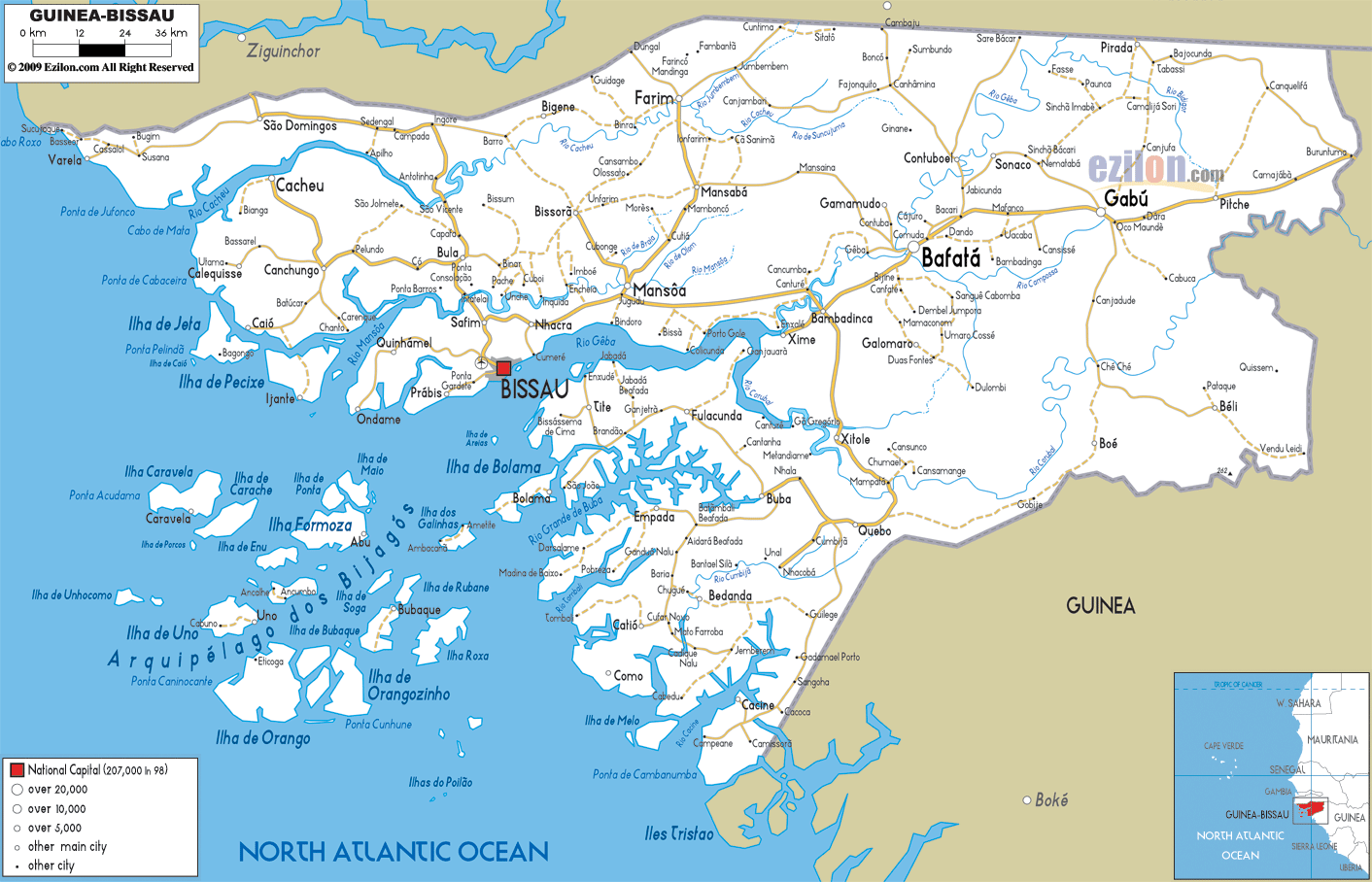It
was first Senegal, then it moved on to Mali and now it’s Guinea Bissau. Guinea
Bissau is back in the news again with a thump and as it’s so associated with
this small coastal West African nation with many islets in the Atlantic Ocean,
it is for all the bad reasons.
West
Africa is indeed an interesting sub-region of Africa. On Thursday, April 12, ECOWAS
effectively forced Malian soldiers who annexed power in March 22 this year to
hand over power to a civilian interim administration led by the former speaker
of parliament, Dioncounda Traore.
Even as
this was going on in the Malian capital Bamako, Guinea Bissau’s army were quietly
fine tuning plans to topple the government and disrupt the April 29
presidential election run-off.
 |
| Guinea Bissau |
The former
Prime Minister, Carlos Gomes Júnior,
who won the first round of the presidential election was almost certain of
winning the run-off election.
He is now under arrest, even feared dead, after the
army attacked his house on Thursday night, three weeks after Mali’s former
president was driven out of office by Capt Amadou Sanogo and his visionless, clueless and directionless
thugs.
Disparagingly
described by many as Africa’s first narco-state, the country is barely livable:
high levels of unemployment, there are no factories, unexploited natural
resources, dismembered police and ragtag army infested with narco-traders and associated violence.
Guinea
Bissau is not Somalia for sure but it’s still a tough country by any
standard. Both countries are ungovernable, even anarchic if you like. Robert Kaplan may not need to revise his 1994 thesis again anytime soon.
It’s scandalous
to say that a country is used to coups but Guinea Bissau may be very close to
this. Just as this morning, April 13, 2012, on December 26, 2011 the
country’s population woke up to the sound of gun and artillery fire from an
attempted coup d’tat while the President, Malam Bacai Sanha was receiving medical attention
in France.
The coup failed but the president also never recovered from his illness, diabetes.
Earlier
in June 2009, just a couple of weeks to scheduled presidential elections (June
28 to be specific), the military assassinated Baciro Dabo, a leading presidential
candidate and Helder Proenca, an ex-defence minister.
These
killings took place on the same day but separately. Needless to say, both
assassinations were linked. Dabo and Proenca were allegedly plotting a coup to
kill Prime Minister Carlos Gomes Júnior
and the country’s army chief of staff, Jose Zamora Induta. The same Gomes
Júnior who was arrested during last night’s
coup.
Gomes Júnior had resigned in February 2012, a month
after former president, Sanha died in France, to contest the March presidential
election. He won the first round by twice as many votes as his closest rival
and former president, Kumba Yala. But with last night’s army putsch, the presidential
run-off between will
almost certainly not take place on April 29.
Violent
clashes are not limited to the politicians and the soldiers in Guinea Bissau. Infighting
within the army is intense and so is fighting within the dismembered police
service and other Bissau’s security agencies. Factions regularly fight over
which group controls the drugs trade and other resources of the country.
 |
| Gomes Junior casting his ballot |
 |
| Irony: Guinea Bissau soldiers queue to vote |
It’s
a circle of mutinies, coups, uprisings, assassinations and now
narcotics trade. Over the last few years, the viciousness seems to have been
cranked up.
It is easily attributable to the spoils of the drugs trade and the acute power struggle between the political class and the politically powerful military.
It is easily attributable to the spoils of the drugs trade and the acute power struggle between the political class and the politically powerful military.
Guinea
Bissau is now a major a staging post for the trans-shipment of narcotics from
South America to coke-addicted Europe via West Africa.
President
Joao Bernardo ‘Nino’ Viera, who himself first came to power by toppling Luis
Cabral, was murdered by the army on March 2, 2009. Viera’s assassination was
partly fueled by an earlier bomb attack on and subsequent murder of his key
political rival and army chief of staff, General Batiste Tagme na Waie long suspected
to be involved in the drugs trade.
If
you thought the plot of Guinea Bissau’s intriguingly opaque and checkered power
struggle and political chess game is complicated, you're right. Dabo who
was killed in June 2009, three months after the assassination of President Viera
was a close associate of the president.
The army apparently panicked Dabo could pursue them if he won the elections to jail those (soldiers and non soldiers) who plotted and assassinated Viera.
The army apparently panicked Dabo could pursue them if he won the elections to jail those (soldiers and non soldiers) who plotted and assassinated Viera.
Economically,
Guinea Bissau is an even more insignificant economy than Mali in West Africa
but the danger it poses to the larger region is grave given its uncharitable
reputable as a major narcotics transiting and arms trafficking enclave within
the sub-region.
So
what can we expect from the regional body, ECOWAS? ECOWAS will quickly get involved
in Guinea Bissau as it has done before to restore order.
But the
sub-regional grouping is likely to be more nuanced in how it tackles this
country in comparison with Mali for a number of reasons not least because Bissau
is a longstanding troubled country needing a more careful nudge to remold the
failing state and move it and the long-suffering population away from a rather violent
and unstable past to a stable and progressive path.
Put simply, ECOWAS won't adopt a 'machoman' posture with Bissau.
Put simply, ECOWAS won't adopt a 'machoman' posture with Bissau.
Over
to you, ECOWAS!







